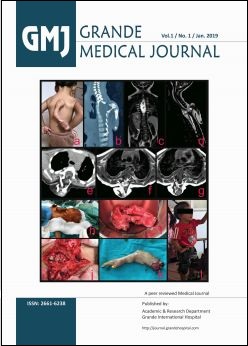Recurrence of spinal epidural abscess after inadequate antibiotic dosage regimen
DOI:
https://doi.org/10.3126/gmj.v1i1.22419Keywords:
Antibiotic, Immunocompromised, Spinal epidural abscessAbstract
Introduction: Spinal epidural abscess (SEA) is a potentially life threatening condition which can present with a clinical triad of fever, back pain and neurological deficit. It is more common in elderly population with risk factors like immunocompromised status, diabetes mellitus and alcoholism. High index of clinical suspicion of SEA warrants prompt investigated and treatment. Immediate surgical decompression along with antibiotic is recommended for better outcome.
Case Presentation : A 16 years old boy presented with complaints of fever, upper back pain which had developed gradually over a period of 10 days. He had history of furuncle in perineal region 3 weeks prior to his symptoms, which was drained. With high clinical suspicion of SEA, Contrast enhanced Magnetic Resonance Imaging (CEMRI) was done along with blood parameters and was diagnosed as SEA D3-D6 level. He underwent immediate surgical decompression and was given 3 weeks of antibiotics. Post-operative period was uneventful with clinical improvement of the symptoms. He again presented to us with relapse of the infection on 28th post-operative day with similar fever and back pain. He was reinvestigated with MRI and blood investigations which revealed relapse of the infection. He was then managed with intravenous (IV) Vancomycin for 2 weeks and oral Erythromycin for another 6 weeks. He did not require any surgical intervention in his later presentation.
Conclusion: Spinal epidural abscess is a surgical emergency and prompt diagnosis with surgical drainage is recommended for better outcome even when there is no neurological deficit. Abscess drainage should be adjunct with longer duration of antibiotics for at least 6 weeks for optimum results.
Downloads
Downloads
Published
How to Cite
Issue
Section
License




